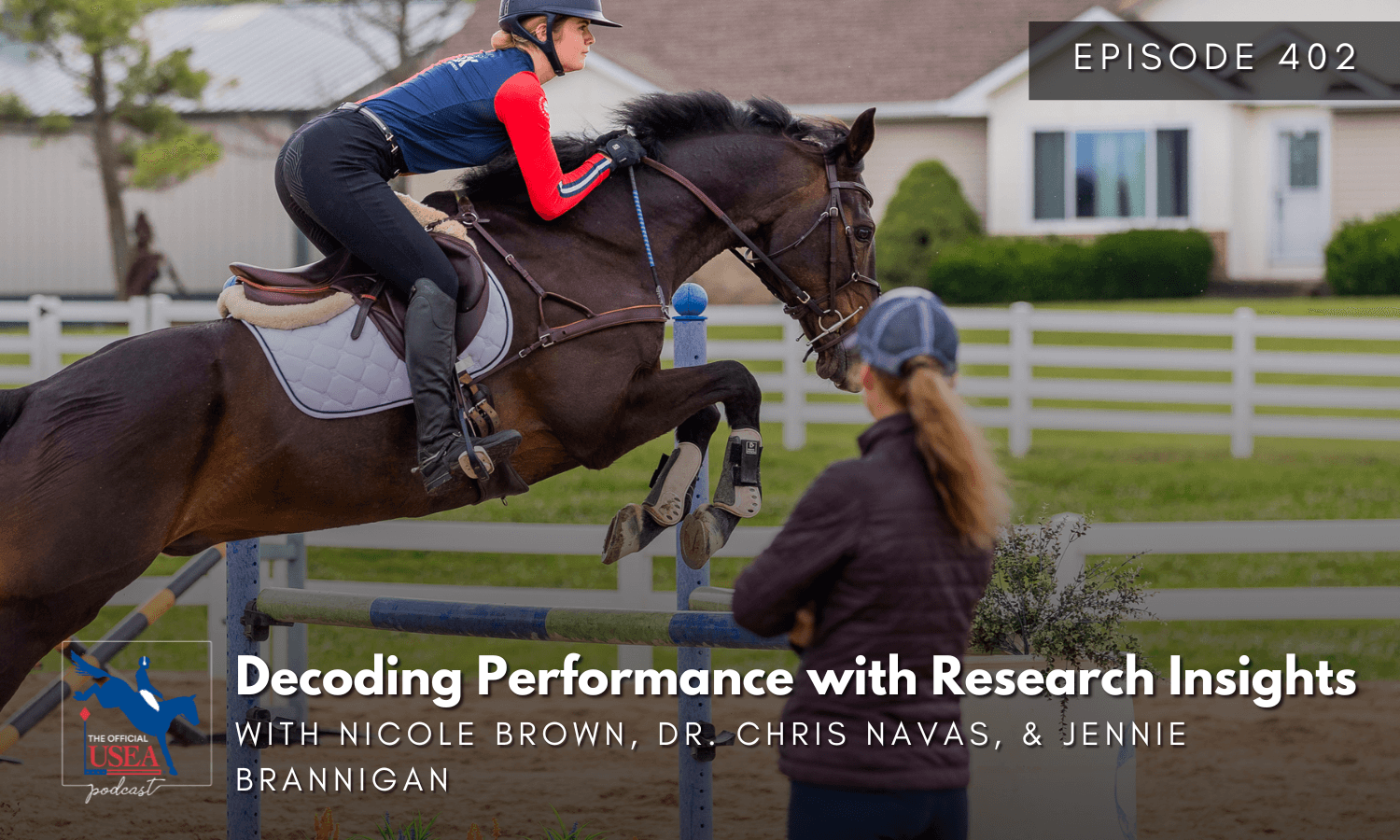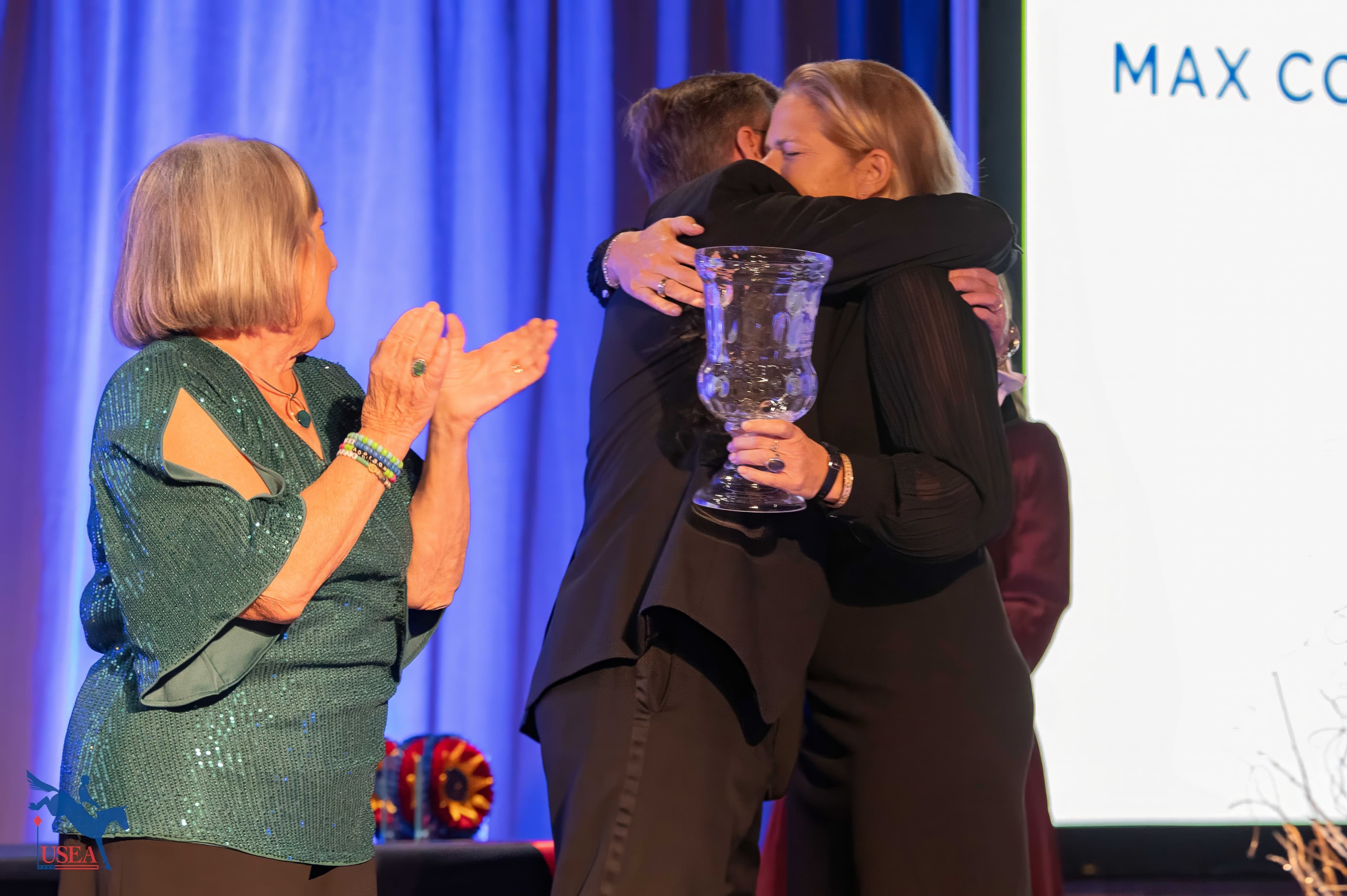When it Comes to EPM Not Just Any Treatment Will Do

This educational article is brought to you by Merck Animal Health, the Official Animal Heath Care Provider of the USEA.
Stumbling. Weakness and muscle atrophy in the hind end. Behavioral changes. Lameness. Any of these could be a sign your horse has equine protozoal myeloencephalitis (EPM). It can have devastating effects on a horse’s ability to perform.
A progressive and potentially fatal infection of the central nervous system, EPM is caused by a single-celled protozoal microorganism, most commonly Sarcocystis neurona (S. neurona), and is primarily transmitted by opossums through their feces.
EPM is one of the most common neurological diseases of horses in North America. Researchers estimate that approximately 30 to 80 percent of the U.S. horse population has encountered the parasite and produced antibodies. However, not all horses exposed become infected or develop clinical signs.
Often referred to as the “master of disguise” because it can look like many other neurologic diseases or even obscure lameness. It is important to have your veterinarian conduct a thorough physical and neurological exam and appropriate diagnostic work up to confirm EPM.
Clinical signs of EPM may include:
- Ataxia (unsteady gait)
- Weakness
- Muscle atrophy (typically asymmetrical)
- Cranial nerve deficits (including inability to swallow)
- Decreased tongue tone
- Ear or eyelid droop
- Head tilt
- Blindness
- Seizures (rarely)
Early diagnosis and treatment critical to recovery
Although the veterinary community is constantly working toward a proven way to prevent EPM, for now, the best way to keep your horse from getting the disease is to avoid exposing him to opossum feces. Keeping a clean barn and property to avoid attracting opossums into feed sources is important.
If your veterinarian confirms your horse has EPM, there are fortunately FDA-approved EPM treatment products available, including PROTAZIL® (1.56% diclazuril). PROTAZIL is the only FDA-approved product that comes in a convenient top-dress, pelleted formula. The alfalfa-based PROTAZIL pellets are well-accepted by horses and consumed without the mess, fuss, and stress of a paste.
When it comes to treating horses with EPM, time matters. Using a product that is rapidly absorbed means the damaging parasite has less time to attack the horse’s nervous system. PROTAZIL quickly reaches therapeutic levels – within 12 hours – without the need for a loading dose at the start of treatment*.
If you are concerned about EPM or think your horse might be showing neurological signs, call your veterinarian immediately. Horses that are diagnosed early and treated aggressively have the best chance for recovery. For more information, visit Merck-Animal-Health-Equine.com.
Important Safety Information
Use of Protazil® (1.56% dicazuril) is contraindicated in horses with known hypersensitivity to diclazuril. Safe use in horses used for breeding purposes, during pregnancy, or in lactating mares has not been evaluated. The safety of Protazil® (1.56% dicazuril) with concomitant therapies in horses has not been evaluated. See related page in this issue for details. For use in horses only. Do not use in horses intended for human consumption. Not for human use. Keep out of reach of children.
*Hunyadi L, Papich MG, Pusterla N. Pharmacokinetics of a low-dose and FDA-labeled dose of diclazuril administered orally as a pelleted top dressing in adult horses. J of Vet Pharmacology and Therapeutics (accepted) 2014, doi: 10.111/jvp.12176














